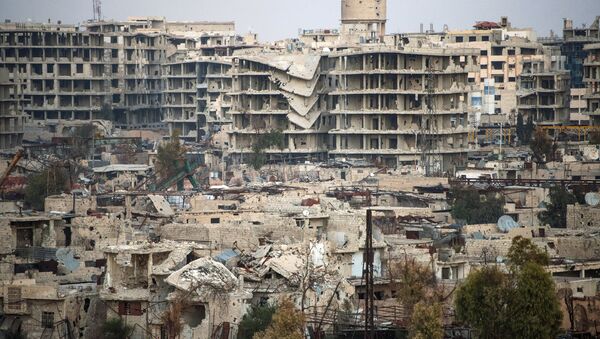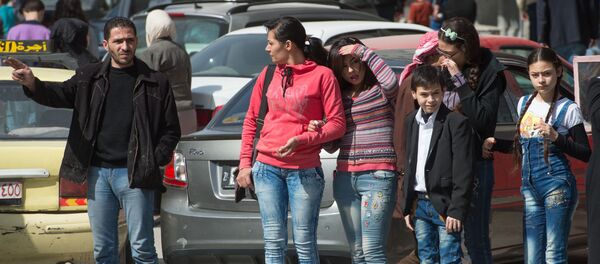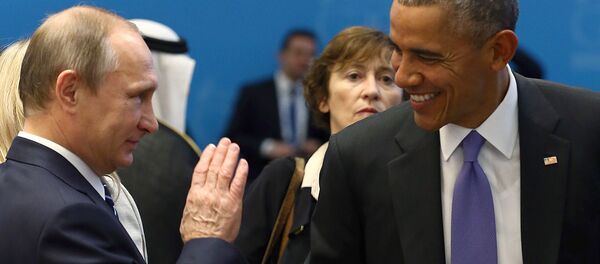WASHINGTON (Sputnik) — The number of local ceasefire deals in Syria has now reached 44, the Russian Defense Ministry announced on Thursday.
“So far, so good,” Just Foreign Policy think tank policy director Robert Naiman told Sputnik. “Will it hold? Nobody knows. But if I had to guess, I would guess that it will hold good enough.”
However, Naiman also cautioned that several of the warring factions in Syria, especially radical Islamists, would try to undermine the cessation of hostilities agreement, which was pushed through by Russian Foreign Minister Sergei Lavrov and US Secretary of State John Kerry.
“The people who have the greatest incentive to try to undermine it are the Nusra [Front]. They have the most to lose,” he explained.
The Russian center on Syrian reconciliation registered 14 violations of ceasefire regime in Syria in the last 24 hours, the Russian Defense Ministry said Thursday.
“We come back to the questions that have bedeviled us for four years: Would they have to segregate Kurds, Christians, Yazidis, Sunnis, and Alawites so that they didn't kill each other?” Ohio Northern University Assistant Professor of History Robert Waters told Sputnik.
The chaotic nature of the Syrian conflict over the past five years had destroyed any remaining sense of wider social responsibility among the country’s many minority communities and threw doubt on the effectiveness of creating safe zones to protect them, Waters warned.
The assistant professor also expressed skepticism that military forces from conservative, pro-American Sunni Arab states would be credible protectors for many Syrian groups.
“If radical Islamists attacked the safe zone, would Saudi, Jordanian, Omani, or Emirati soldiers risk life and limb to protect Kurds, Yazidis, Alawites, or Christians?” he said.
“Would Obama back up the Arab states if Daesh attacked in force?…Current UN Ambassador Samantha Power pulled no punches about the Clintons' many failures to prevent genocide. But she hasn't used her UN bully pulpit to say much about the various Daesh genocides,” he pointed out.
Russia and the United States reached an agreement on a ceasefire in Syria on February 22, which took effect on February 27 and does not apply to terrorist groups operating in the country.






